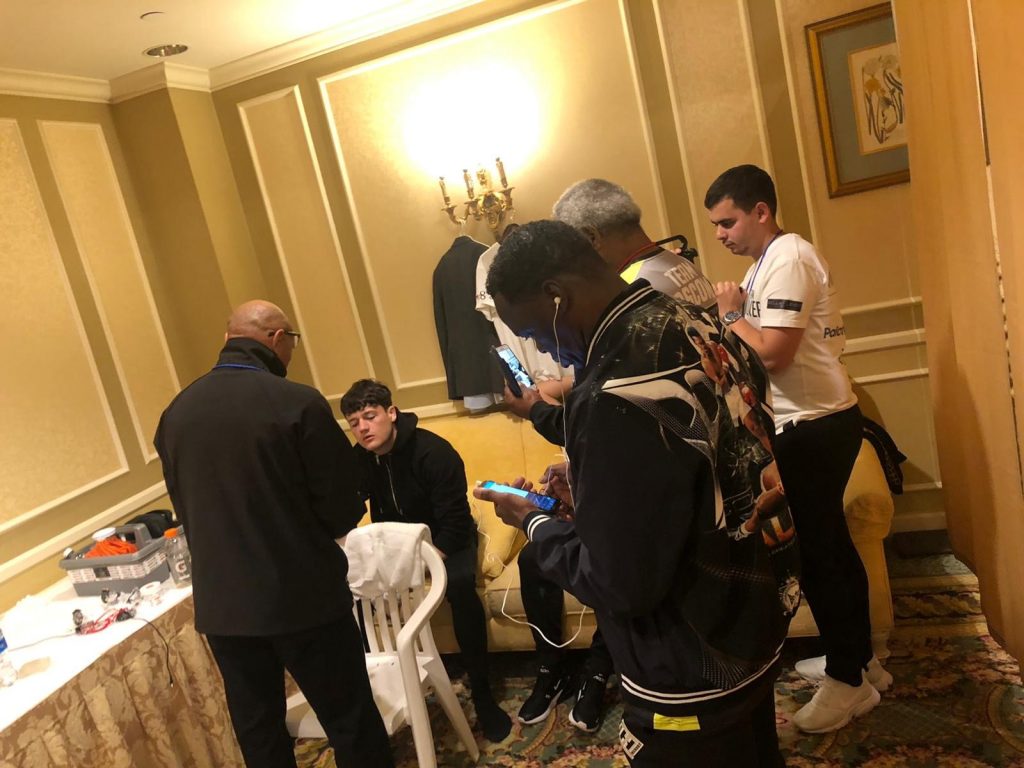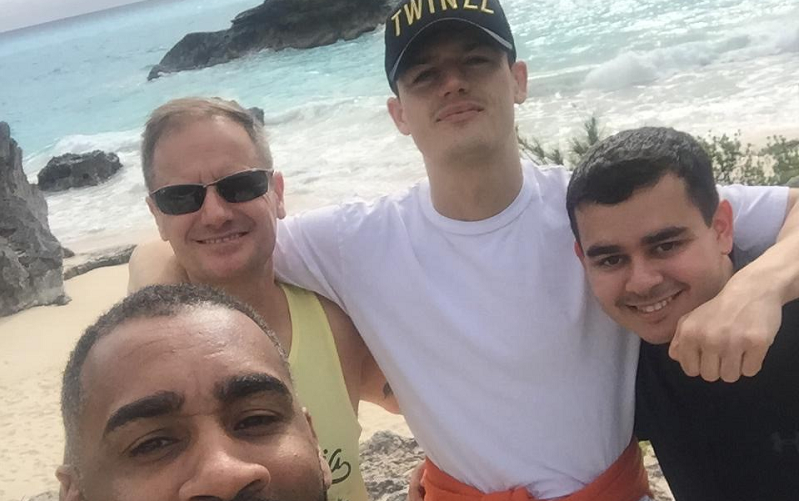We offer each of our trainees up to £1,000 every summer of their degree to spend on journalism work experience or a journalism project. It’s part of what makes us the UK’s most practical journalism degree.
Here, trainee Luke Madeira tells us how he used his journalism bursary to film a boxing documentary in Bermuda.
“Having commentated on boxing for a number of years now, I have always had the ambition to work on a Pay-Per-View card.
The School of Journalism bursary meant I could do this as it allowed me to travel to Bermuda to work on the fight between local hero Nikki Bascome and Brit Ryan Oliver.
As well as commentating on the fight, I also put together a feature-length documentary about the fight week which has been published on British Boxers TV.
As part of this I followed Oliver while he completed radio interviews, a media workout, a press conference and weigh-in before the fight itself.
Oliver and his team granted me complete access to their whole trip, which allowed me to put together a documentary showing parts of a fight week that the public are unlikely to have seen before.
As the fight was sold out and $49.95 to watch on TV, the publicity the event received was unbelievable. Oliver got stopped in the streets by locals every time he left the hotel, and everywhere we went people wanted to speak to him to wish him good luck.
I recorded some footage before we left, but the main part of the filming began on Monday morning.
There was a radio interview on Monday followed by a tour of the island, allowing us to take in the sights.
When we got back to the hotel Oliver and his coach Haroon Headley went through a tough pads session, finalising the plans they had worked on for the fight.
We walked down to the beach to do this, and there are some great shots of the beach and sea behind the pair as they work in the video.
Tuesday began with another radio interview, this time with a more hip-hop feel to it. Once that was complete, we went back to the hotel for another training session.

Oliver trained for the first time in the room where the fight was to take place, although the ring had not been constructed yet.
Wednesday was the beginning of the traditional fight-week events, with all the island’s media invited to attend a media workout where both fighters competing in the main event put on a show for fans.
Oliver did some skipping and then pads in the southpaw stance (despite being an orthodox fighter), a mind game they had planned weeks in advance to disrupt his opponent’s preparations.
The promoter had made it clear that the pair would be separated until the press conference scheduled for Thursday, but Bascome arrived early and bumped into Oliver as he headed out of the gym. The pair exchanged handshakes but there was a tense atmosphere in the room.
Team Oliver were told there would not be a press conference, but Thursday afternoon came and Team Bascome arrived with the media ready to start.
Oliver rushed downstairs to sit on the top table with his opponent, and the pair could not have been in different moods.
Bascome and his coach were very serious, answering every question asked of them with short answers. Oliver and Headley went for a more jovial approach, joking around before asking his opponent for a selfie.
Friday is always a tense day as the fight looms over everybody involved, especially because the weigh-in was scheduled for 6.30pm (UK weigh-ins usually take place between 12pm-2pm).
Oliver made the weight on the scales provided by the promoter, but when he stepped on a different pair of scales on the stage, he was adjudged to weigh 147 pounds (two pounds over the agreed limit).
Arguments followed and it was eventually agreed that the fight would take place, with Team Oliver being fined 10% of their purse. Despite this, the commissioner confirmed the fight was going ahead as both fighters weighed in at 145 pounds.
Another dispute erupted over the gloves that each fighter would wear, but this was eventually sorted, and we had a fight!
I am lucky enough to have family in Bermuda who I stayed with during my time there, and to say thank you for the access I was given by the team we invited them round to the house on the day of the fight for lunch.
I really enjoyed working on fight night, recording the warm-ups for the documentary. I then rushed to the commentary position for the main event which in itself was a challenge.
For some reason, the production company kept turning my microphone off when I had anything complimentary to say about the away fighter.
The experience I had in Bermuda is one I will never forget, and it would not have been possible without the help of the journalism bursary from the School of Journalism.”
To apply for our NCTJ-accredited BA (Hons) Journalism degree in London or Manchester, here are the UCAS codes you need:
Course code: MUJO
Institution code: P63
Campus: Manchester (M) or London (L)
Want to know how to land your dream journalism work experience placement? Click here.
Got a question about how to become a journalist? Email [email protected] and check out our other getting into journalism blogs here.
You may also like:
How I spent my journalism bursary covering Cannes and Venice film festivals
How I spent my journalism bursary covering the Copa America in Brazil

